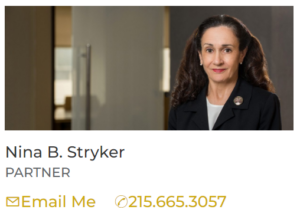“I Care a Lot”….about your money – Financial Exploitation of the Elderly
If you haven’t seen the Netflix film “I Care a Lot,” SPOILER ALERT!!!! – Rosamund Pike portrays a professional guardian who, with the help of a crooked doctor and oblivious judge, has elderly persons declared incapacitated, has herself appointed as legal guardian, and then proceeds to clean out their assets for her own personal gain.
As an attorney who regularly works in this field, representing family members, alleged incapacitated individuals, and guardians, nothing makes my blood boil more than discovering someone has taken advantage of an elderly or disabled individual.
Unfortunately, the exploitation of the vulnerable happens more than we care to admit. How does this happen in the legal world, you ask? Well, it doesn’t happen exactly like this. The writer takes serious liberties with the legal requirements, but this is a movie, not Guardianships 101, after all.
First, someone needs to file a petition for adjudication of incapacity and the appointment of guardian.
Under Pennsylvania law, the petitioner “may be any person interested in the alleged incapacitated person’s (“AIP”) welfare”. This is a fairly broad definition and may include family, neighbors, area agencies on aging, healthcare provider, or other professionals with a relationship to the AIP.
The petitioner needs to prove incapacity by clear and convincing evidence of specific findings of cognitive incapacity that has impaired the person’s ability to understand information, make reasoned decisions, effectively manage their financial resources, or assure their own physical health and safety.
An emergency hearing is proper where it is apparent that the AIP is at imminent risk of irreparable harm, including severe financial exploitation, medical risk, or risk of homelessness.
The petitioner is also required to show that there is no less restrictive alternative to guardianship (i.e. Power of Attorney, community supports). Guardianships are a last resort because it deprives a person of his/her legal rights and restricts their rights to autonomy and self-determination.
Once this is shown, the proposed guardian must qualify to serve as the guardian of the person (making personal, residential, and medical decisions for the AIP) and/or as the guardian of the Estate (making financial decisions, managing income and property).
So how does a person get adjudicated incapacitated and appointed a guardian against their wishes, without even being present in court?
Well, in an emergency hearing, the 20-day notice period is typically waived, but required for the plenary hearing. The AIP has a right to counsel and if they can’t afford one, counsel will be appointed by the court. The AIP is also required to attend the hearing unless there is a sworn statement by a physician that the AIP’s physical or mental health would be harmed by attending. All of this plays perfectly to Pike’s game, since she’s manipulating all sides.
One would hope that a Judge would follow suit with Montgomery County Orphans’ Court, and appoint a well-vetted experienced Orphans’ Court attorney to represent the AIP. That would be the only way to protect the AIP in this film scenario.
How does a person avoid this situation?
Have a current complete estate plan, with Financial and Healthcare Powers of Attorney, drafted by an experienced Wills & Trusts lawyer. Choose your agent under Power of Attorney wisely. Make sure it is someone you trust implicitly and then name a backup agent, just in case. While I can’t promise that you won’t end up in a guardianship proceeding if you have a POA (your agent could go rogue, fail to act or die and there is no backup named), the chances are extremely low if you have the proper documents in place. Don’t let poor planning cause you to end up on “Rosamund Pike’s wall.”
Please contact one of Obermayer’s Trusts and Estates attorneys with any questions you may have.




The information contained in this publication should not be construed as legal advice, is not a substitute for legal counsel, and should not be relied on as such. For legal advice or answers to specific questions, please contact one of our attorneys.









